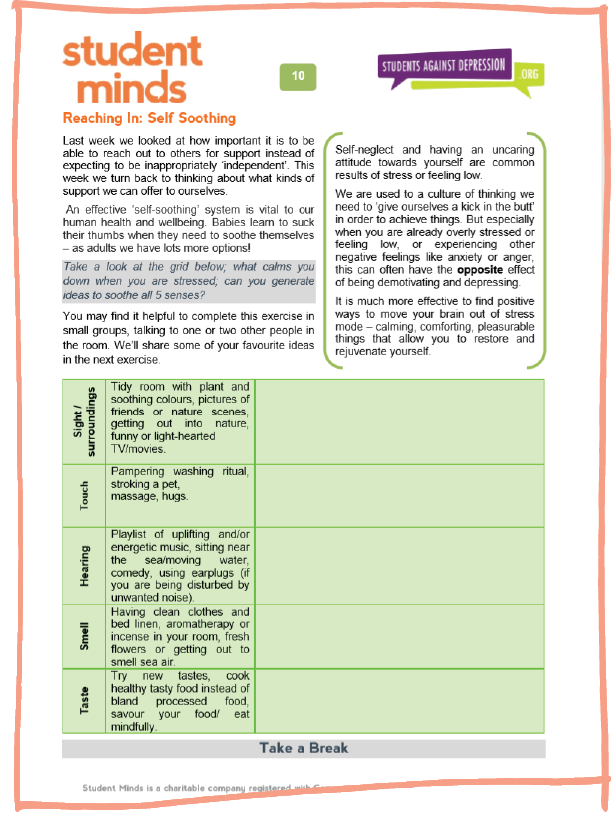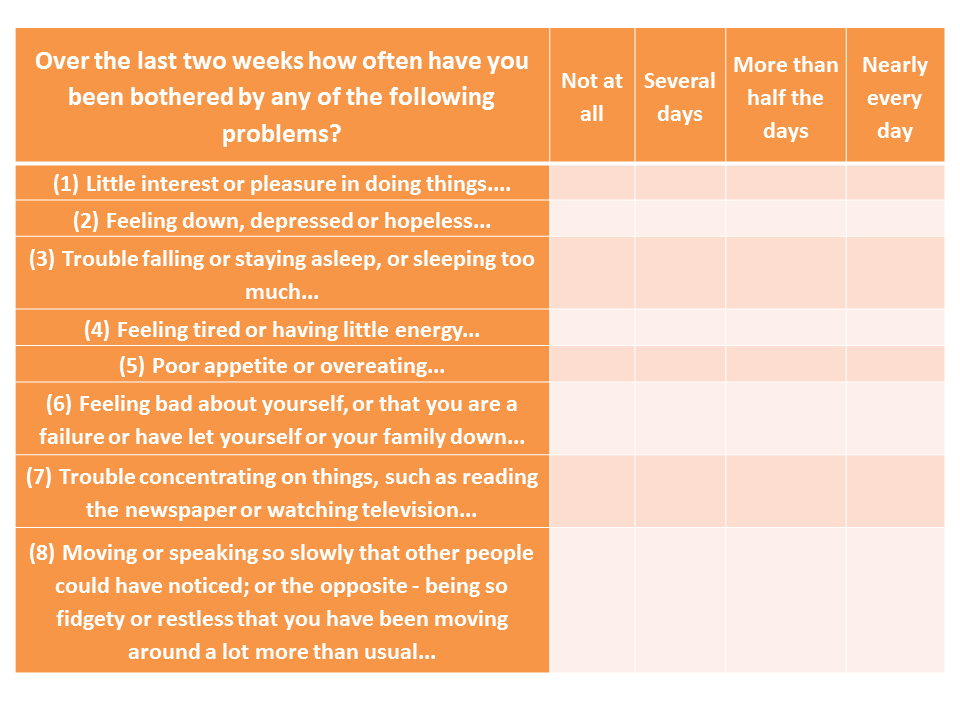Please note that due to Covid-19, we're currently not running this peer support course
Positive Minds
|
Our Positive Minds peer support course has been designed to give students the skills they need to keep low mood at bay. The six week, confidential course has been developed using material from Students Against Depression which provides award-winning information and self-help resources for depression.
The course is run by our trained peer support facilitators who are students just like you. Our student peer support facilitators offer a safe, supportive environment where you can talk freely without fear of judgement. When low mood hangs around, it can feel easy to end up in a downward spiral. Whilst the course itself is not a substitute for professional help, the strategies discussed in Positive Minds offer a starting point for what you can do to prevent chronic stress or low mood from persisting or getting worse. By supporting you to make positive changes in your daily life, Positive Minds helps students to build strategies to maintain a positive mood throughout university. |
"It is an amazing feeling, sitting in a room where people are sharing things they have never shared with anyone. When others say they have felt that way too or experienced the same thing, there's a sense of relief and acceptance. It is the most empowering thing I have ever experienced" |
|
The course
Positive Minds is suitable for most students and covers a different topic each week. The topics provide the basis of the sessions, but there is flexibility to tailor the discussions to your experiences. Here are the topics that will be covered: Week 1 - Building a Support Network Week 2 - Active Stress Management Week 3 - Mornings and Sleep Week 4 - Reflections, Food and Mood Week 5 - Activity, Exercise and Relaxation Week 6 - Positive Socialising |
Taking depression seriously
Positive Minds has been designed for university students with mild depression or individuals who have experienced depression before and would like to take steps now to prevent future episodes of depression.
The course is not suitable for individuals with more severe depression and is not a substitute for professional treatment. Depression can be a serious illness and it is always advisable to seek professional support if you think you may be depressed, or if you are or have recently been feeling suicidal.
We suggest that you answer the following questions, which are taken from the Brief Patient Health Questionnaire - a questionnaire used to identify depression:
Positive Minds has been designed for university students with mild depression or individuals who have experienced depression before and would like to take steps now to prevent future episodes of depression.
The course is not suitable for individuals with more severe depression and is not a substitute for professional treatment. Depression can be a serious illness and it is always advisable to seek professional support if you think you may be depressed, or if you are or have recently been feeling suicidal.
We suggest that you answer the following questions, which are taken from the Brief Patient Health Questionnaire - a questionnaire used to identify depression:
|
If you select "more than half the days" or "nearly every day" for more than 4 of the questions, this course may not be the most suitable for you and you may benefit from more specialist support. Sometimes students come back to attending a group after accessing medical advice from their GP.
We would strongly encourage you to book an appointment with your university counsellor or your local GP. For further suggestions on where you might access support, please visit our Support Pages. |



